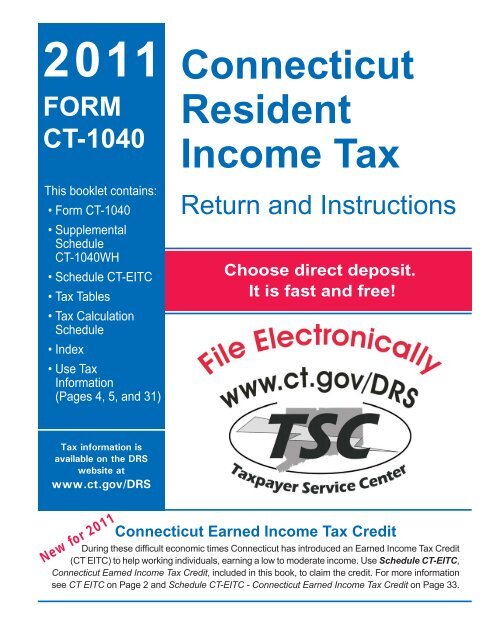IP 2011(27)
Connecticut Income Tax Treatment of Gambling Winnings Other Than State Lottery Winnings
Purpose: This Informational Publication answers frequently-asked questions about the Connecticut income tax treatment of gambling winnings other than lottery winnings from state-conducted lotteries (state lottery winnings). Frequently-asked questions about state lottery winnings are answered in Informational Publication 2011(28), Connecticut Income Tax Treatment of State Lottery Winnings Received by Residents and Nonresidents of Connecticut.

However, if the taxpayer also had gambling winnings in New Jersey, he could not credit his New Jersey tax payment for those winnings against his Connecticut tax because, under Connecticut law, gambling winnings are not credit-eligible income. Winnings from gambling can be taxable and should be reported on your tax return. You should have received a W2-G showing the full winning amount and the amount of taxes withheld. Turbo Tax asks simple income questions to make sure the correct amounts are reported.
The Connecticut state income tax is based on a taxpayer ' s federal AGI (before deductions – Form 1040, Line 33) and not his federal taxable income (after deductions – Form 1040, Line 39). Thus, the state taxes gambling winnings but does not allow a taxpayer to offset winnings by deducting gambling losses. The Connecticut income tax does. If the winner is a part-year resident of Connecticut and meets the gross income test, gambling winnings are subject to Connecticut income tax to the extent includable in the winner’s federal adjusted gross income and to the extent the winnings were received during the Connecticut residency portion of the winner’s taxable year. There’s no gray area in the U.S. Tax code, though. It says that you must pay taxes on money that you earn if you are a citizen of the country. That includes money earned through gambling — this goes beyond mere poker games — and it counts money you earn overseas. There’s a bigger picture here, as well. Maybe you never earned the money.
Definitions:
DRS means the Department of Revenue Services.
IRS means the Internal Revenue Service.
Gambling winnings means and includes proceeds from a wager placed in a sweepstakes; wagering pool or lottery (other than state-conducted lottery); payments made to winners of poker tournaments on or after March 4, 2008; or proceeds from a wagering transaction (including a wagering transaction in a casino, a parimutuel pool with respect to horse races, dog races, or jai alai). Gambling winnings also include door prizes, contest prizes, and prizes from raffles or similar drawings. Gambling winnings do not include state lottery winnings.
State-conducted lottery means a lottery conducted by an agency of a state acting under authority of state law, but only if the wager is placed with the state agency conducting the lottery or with its authorized employees or agents. State-conducted lottery includes the Connecticut Lottery conducted by the Connecticut Lottery Corporation, a public instrumentality of the State of Connecticut.
State lottery winnings means lottery winnings from a wager placed in a state-conducted lottery where the wager is placed with the state agency conducting the lottery or with its authorized employees or agents. State lottery winnings include Connecticut Lottery winnings.
Are Gambling Winnings Taxable In Connecticut Unemployment
1. Are gambling winnings subject to Connecticut income tax?
Whether gambling winnings are subject to Connecticut income tax depends on whether or not the winner is a Connecticut resident.
If the winner is a resident of Connecticut and meets the gross income test (below), all gambling winnings are subject to Connecticut income tax to the extent includable in the winner’s federal adjusted gross income.
If the winner is a part-year resident of Connecticut and meets the gross income test, gambling winnings are subject to Connecticut income tax to the extent includable in the winner’s federal adjusted gross income and to the extent the winnings were received during the Connecticut residency portion of the winner’s taxable year.

If the winner is a nonresident of Connecticut, gambling winnings, whether from gambling in Connecticut or from gambling outside Connecticut, are not subject to Connecticut income tax.
For information on whether an individual is a resident, nonresident, or part-year resident, see the instructions to the Connecticut income tax return for residents Form CT-1040, Connecticut Resident Income Tax Return, or the Connecticut income tax return for nonresidents or part-year FormCT-1040NR/PY, Connecticut Nonresident and Part-Year Resident Income Tax Return.
Gross income test:
A winner must file a Connecticut income tax return and report his or her gambling winnings if the winner’s gross income for the 2011 taxable year exceeds:
· $12,000 and the winner is filing separately;
· $13,000 and the winner is filing single;*
· $19,000 and the winner is filing head of household; or
· $24,000 and the winner is filing jointly or qualifying widow(er) with dependent child.
A winner’s gross income includes all income received in the form of money, goods, property, and services not exempt from federal income tax and any additions required to be reported on Form CT-1040, Schedule 1. Gross income includes but is not limited to compensation for services including wages, fees, commissions, taxable fringe benefits, and similar items; gross income from a business; capital gains; interest and dividends; gross rental income; gambling winnings; alimony; taxable pensions and annuities; prizes and awards; income from partnerships, S corporations, estates, and trusts; individual retirement account distributions; unemployment compensation; and federally taxable Social Security benefits.
If a winner’s gross income does not exceed the applicable gross income threshold and Connecticut income tax has been withheld from his or her gambling winnings, the Connecticut income tax will not be refunded to the winner unless he or she files a Connecticut income tax return.
2. Are gambling losses deductible?
Gambling losses are not deductible for Connecticut income tax purposes even though, in certain circumstances, they are deductible for federal income tax purposes.
3. May a resident or part-year resident claim a credit against his or her Connecticut income tax for income tax paid to another state on gambling winnings?

Are Gambling Winnings Taxable In Connecticut State
4. Will Connecticut income tax be withheld from gambling winnings?
Connecticut income tax will be withheld from a payment of gambling winnings if all of the following conditions are met:
Are Gambling Winnings Taxable In Connecticut Tax
- The payer maintains an office or transacts business in Connecticut;
- The payment is subject to federal income tax withholding; and
- The payment is made to a resident or to someone receiving the payment on behalf of a resident.
Are Gambling Winnings Taxable In Connecticut Income Tax
For example, a dog track located within Connecticut must withhold Connecticut income tax from a payment of winnings only if the payment is subject to federal income tax withholding and the payment is made to a resident or to someone receiving the payment on behalf of a resident. Also, if a payer of gambling winnings is a nonprofit organization maintaining an office or carrying on activities in Connecticut, the nonprofit organization must withhold Connecticut income tax from a payment of gambling winnings if it is required to withhold federal income tax from the payment and the payment is made to a resident or to someone receiving the payment on behalf of a resident.

The fact that federal or Connecticut income tax may have been withheld from a winner’s winnings does not excuse the winner from filing a federal income tax return or a Connecticut income tax return.
5. Is a winner required to provide his or her name, address, and Social Security Number (SSN) to the payer?
6. How is a winner’s residency status determined?
7. What if there is more than one winner?
8. Will payments of gambling winnings be reported to DRS?

If a payer of gambling winnings maintains an office or transacts business in Connecticut, the payer is required to report payments of gambling winnings to DRS if the payer is required to report the payment to the IRS and the payment is made to a resident or to someone receiving the payment on behalf of a resident.
The fact that a payer may not have been required to report a payment of gambling winnings to the IRS does not excuse the winner from reporting those winnings for federal and Connecticut income tax purposes.
For More Information: Call DRS during business hours, Monday through Friday:
- 1-800-382-9463 (Connecticut calls outside the Greater Hartford calling area only); or
IP 2011(27)
Income Tax
Gambling Winnings
Issued: 01/04/12